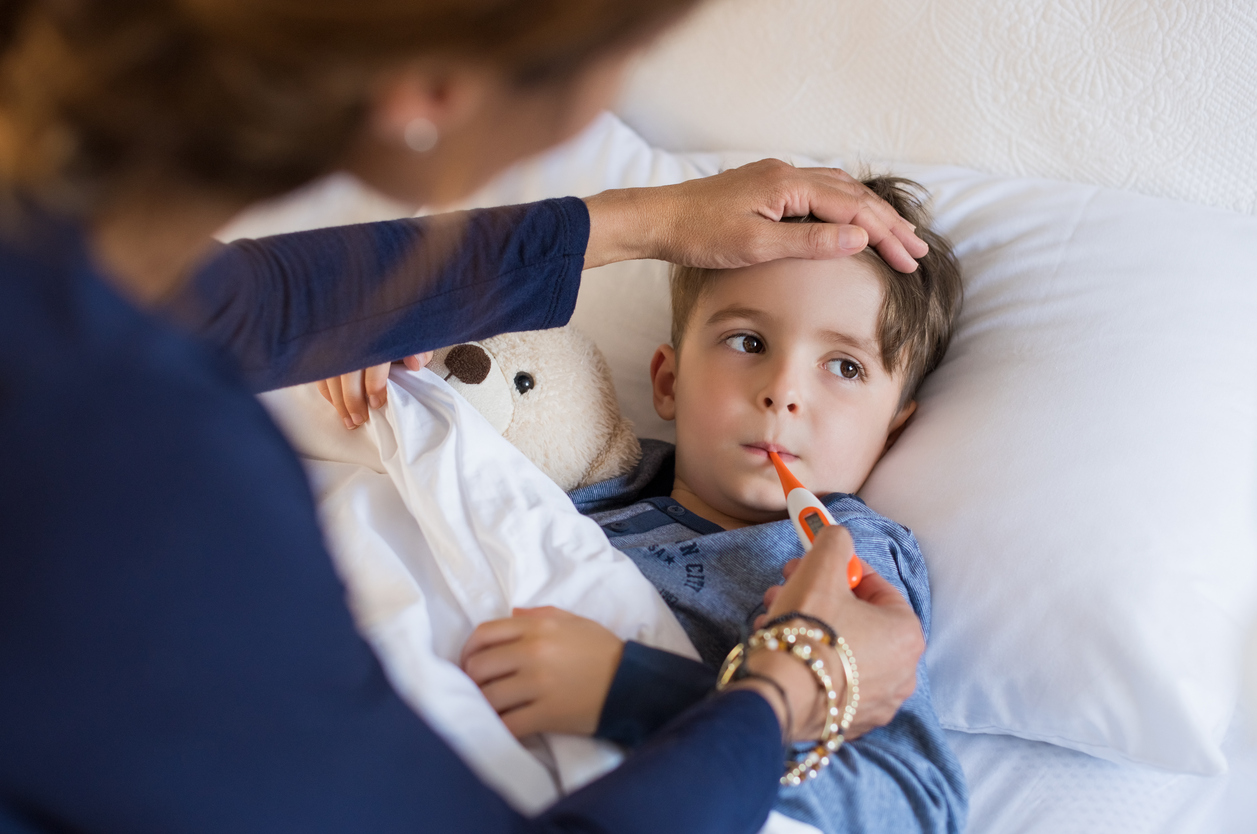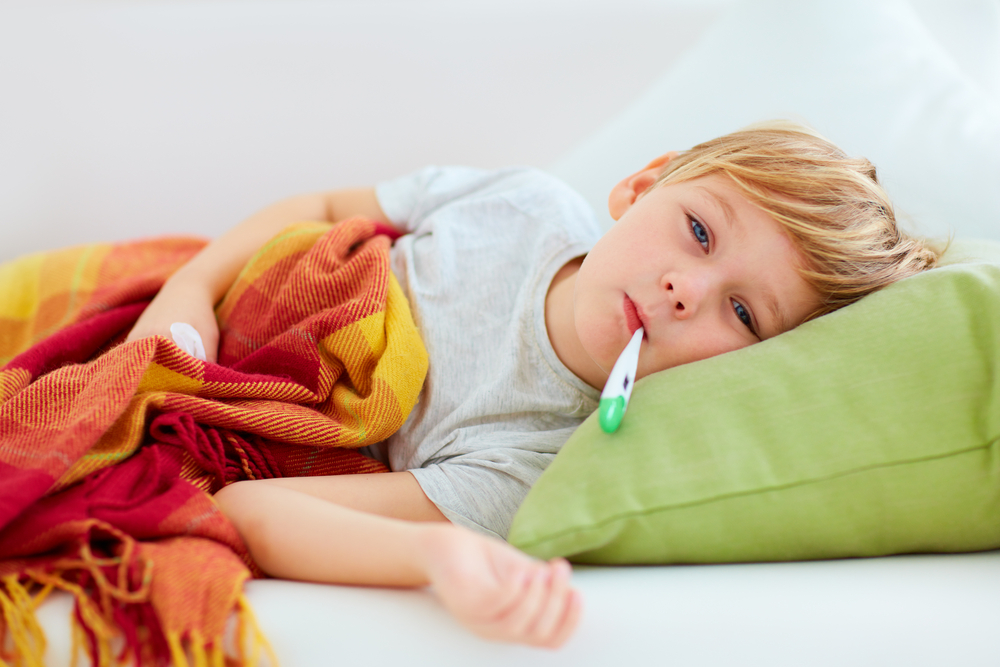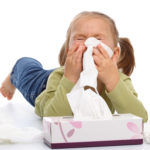Fevers can be scary for parents! Particularly if it’s the first time your child has a fever.
But the truth is, every child will experience a fever at some point in their young lives, and it’s not as scary as you might think.
We’ll let you know when a fever is nothing to worry about, and some warning signs that may indicate something more serious.
We’ll also share some effective home remedies for fever in children so you can help your little one feel better fast.
Children’s Fevers 101
Fever Basics:
A fever is actually a good sign! It means your child’s body is working to fight off infection.
In most cases, it’s part of a natural bodily response that should be allowed to continue.
It’s important to note, and this may go against what grandma taught you, that there is no one magic number on the thermometer for when to take a child to the ER for fever.
Your child’s actual temperature is just one symptom of their illness. It’s their overall health and condition that determines when you need to seek medical attention.
But your child’s temperature is still an important clue, so try to get an accurate read.
Take an oral temperature when possible, or a rectal one when not.
Keep in mind ear, sticker, pacifier and temporal artery thermometers are not as accurate as a good old-fashioned digital oral thermometer.
RELATED: Most Effective Cold Remedies For Toddlers And Kids
When To See A Doctor:
- If your child is under three months of age and has a fever over 100.4 degrees. Fevers in a child this young may be the only sign of a very serious illness.
- Your child exhibits signs of respiratory distress. If they’re having trouble breathing, see your doctor immediately or call 911.
- Child has a fever over 104 degrees, particularly if they displays other symptoms such as weakness, diarrhea, or vomiting.
- Your child has any type of fever for more than five consecutive days.
- They are not behaving normally. For example, your child is listless, not able to take fluids, or complains of a stiff neck or sensitivity to light.
- Child’s temperature is above 102 F and they were recently immunized.
- Your child also complains of pain, such as a sore ear or throat, abdominal pain, or painful urination.
- Your mother’s intuition tells you something more serious is going on.
RELATED: Vomiting In Children: Common Causes And Effective Home Treatments

Fever Treatment For Children
What A Doc Says:
- In general, you should focus on the way your child looks, feels, and acts rather than on what the thermometer says. If you have to wrestle them to the ground to give them medicine, they probably don’t need it.
- If you want your child to be seen by your doctor because they are uncomfortable, give them a fever-reducing medication prior. A comfortable child is easier to treat.
- Use fever reducers to treat your kids at home.
- For kids under 6 months, infant acetaminophen (such as Tylenol) is the only recommended fever reducer.
- Older babies and kids can also take children’s ibuprofen (such as Motrin or Advil), which is more effective at fighting fever but also more likely to cause stomach irritation.
- Never give aspirin to a child under 16, it can cause Reye’s syndrome, a potentially fatal liver condition.
- Be sure to read the label and give your child the correct dosage! Dose medications according to your child’s weight, not their age.
- If you ever have any questions about your child’s dosage or medication, call your pediatrician.
What A Mom Says:
- Give your child lots of fluids to ward off dehydration and flush out their system.
- Give them bone broths and homemade soups to heal and nourish.
- Try apple cider vinegar (an old grandmother endorsed remedy) that is thought to “draw out” the fever. Soak a couple washcloths in diluted apple cider vinegar (1 part vinegar and 2 parts water), then place them on the forehead and tummy.
- Place your child in a warm bath. A cold bath shocks the body into raising the internal thermostat even more. But a warm bath may be helpful, especially when a cup of apple cider vinegar is mixed in.
What A Naturopath Says:
- Try making herbal freezer pops to support immune function and keep a child hydrated. Get the recipe here.
- Peppermint tea can help if there are head/muscle aches associated with the fever.
- Mix small doses of coconut oil into food or smoothies for its antibacterial and antiviral properties.
- Try homemade elderberry syrup to boost immune function and make the sick child more comfortable. Here’s a recipe to make your own.
RELATED: Effective Sore Throat Remedies For Kids
SHARE what to do when my child has a fever on Facebook and Pinterest by clicking the button below.












